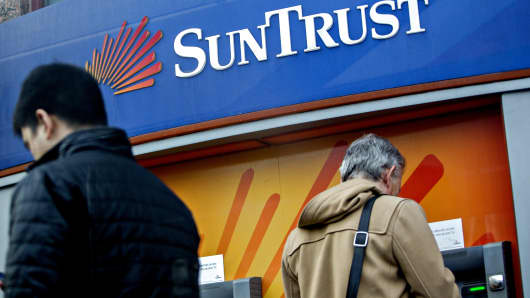The task of taking a multi-billion dollar, century-old bank digital is not an easy one. Amias Gerety, partner at QED Investors and a former acting assistant secretary at the U.S. Department of the Treasury, said the pressure to be excellent at digital is more "intense" than ever.
"The operational challenge of a digital transformation is really difficult," Gerety told CNBC. "There are technical and cultural challenges to it."
Future digital transformations may also include partnering with fintech companies, Gerety said. The two have "complementary" assets, and may very well learn to take advantage of those instead of taking the disruptor vs. disrupted approach.
Other mid-sized banks are likely face the same tech-spending dilemma. Marty Mosby, director of bank and equity strategies at Vining Sparks, is predicting more, similar consolidation for banks needing to compete on technology.
"The bigger banks have to compete with those who have the best digitization and mobile banks," Mosby said. "For them to be able to compete they need bigger scale and scope."
Mosby predicted a "barbell" effect in banking. While smaller community banks can rely on contact with customers, mid-sized banks with less customer contact need to go digital. Those on both ends will grow, leaving few options for those in the middle.
Wall Street embraced the deal on Thursday, with SunTrust shares rallying 8 percent and BB&T up 3 percent. Brian Klock, equity research analyst at Keefe, Bruyette & Woods, said the positive reaction might inspire others to do the same. Shares of Dallas, Texas-based Comerica, which Klock said had been rumored as a similar-sized take-over target, also rallied 5 percent after the news.
"The competition has gotten more intense from bigger banks and the non-banks," Klock said. "A similar deal would take any bank and put them on better footing."






